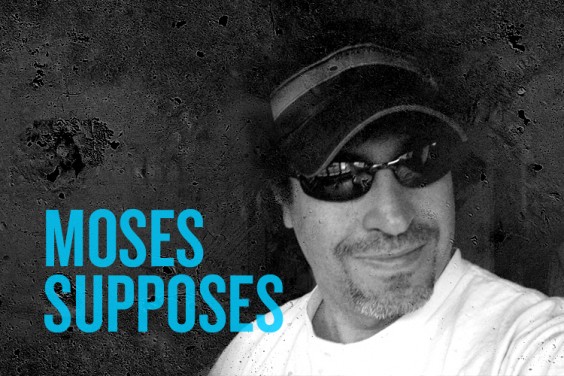Moses Avalon is one of the nation’s leading music-business consultants and artists’-rights advocates and is the author of a top-selling music business reference, Confessions of a Record Producer. More of his articles can be found at www.mosesavalon.com.
You want the 2011 Consumer Electronics Show in one sentence? 3-D TVs, every iPad accessory you can think of, and competing tablet computers. There, I just saved you a trip to Vegas.
Think you’ll never want a 3-D TV or an iPad? You’re wrong; trust me on this. Sony, LG, and a few other minor players are going to make you want 3-D so bad you’ll buy personalized eyewear just for the experience. And as far as juice for the iPadophiles — I cover that after this next thing.
What’s above is for the general public. But for us in the music space, I saw just one significant piece of new technology. Granted, I only got to cover 200,000 of the 1,000,000-square-foot show, so I’m sure I missed a few cool production gizmos. But I’m not impressed anymore by all the studio toys. Show me a new way to sell millions of records, and then I’ll get a woody.
And one exhibit did: HD Radio.
The new in-car HD Radios make it possible to “tag” a song you hear while driving. You can then dock your iThing, transfer this info, and when you get home, you can buy the songs you heard while sitting in traffic. This is the closest we’ve ever come to “hear ‘n’ buy” technology in cars, where people are exposed to a vast majority of their new music.
“This is the closest we’ve ever come to “hear ‘n’ buy” technology in cars, where people are exposed to a vast majority of their new music.”
I spoke to [HD Radio’s] head rep about going to the next obvious step, putting a “buy” button right on the dashboard, thus bypassing the need to transfer data and then purchase at a later time. I was a little shocked at what he told me: “The RIAA was not really happy when we suggested it.”
I can only guess that this was because it creates tags for iTunes only, and the majors would probably want something that allowed a sale directly from their own store — if they had one. Creating an in-car device that connects to many stores (Amazon, Yahoo, AOL, etc.) would be more palatable but is too hard to manage at this time. So instead, for now, we have a lame but innovative iTunes “tagging” system that creates almost as many barriers to sales as it eliminates.
If the rep’s comment is true about the RIAA, then the majors could be getting in the way of their own success by being too picky and blinded by their disdain of iTunes. However, I believe that the truth is a bit more complicated: as with the Internet, which was unproven as a platform in 1999 when majors were hesitant to trust ISPs, so too is HD Radio. It still faces some FCC approval issues. Bandwidth will not be freed up until HD Radio can prove it has a viable market.
Still, this new development is a big step in the right direction of creating an amazing sales platform, and [with it comes] the hope that we are only a few years away from the “hear it in the car and own it within an hour” model that we used to enjoy. You remember: when record stores were in every mall and before the Internet made us go home, boot up our computer, and launch software just to buy a new song.

